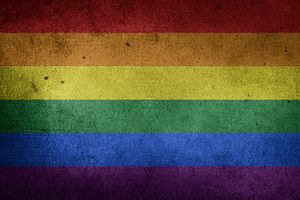While much recent attention has been focused on the LGBT community in Chechnya and the wider North Caucasus, sexual minorities in Central Asia live under significant pressure as well. Russia’s 2013 law prohibiting “propaganda” promoting non-traditional sexual relations has had a consequential impact on LGBT issues in Central Asia. It triggered the introduction of an analogous bill in Kyrgyzstan in 2014. The bill passed second readings twice in 2015 and 2016 and was heading for a third reading and final review before it was suspended due to a change of government. Thus, the law remains in limbo for now with little information available on its future development. Nevertheless, its effect on the LGBT community in Kyrgyzstan has been tremendous. Previously less focused on the LGBT community, advocates of traditional Kyrgyz society turned their attention to the representatives of non-traditional sexual orientations. According to a report by Labrys, an LGBT organization, there was a 300 percent increase in violent attacks against Bishkek’s gay community following the introduction of the proposed legislation. The stories include the shutting down of gay clubs, crashing private parties by patriotic groups, beatings and sexual violence. For example, in November 2018 a bisexual man was beaten several times and one of his attackers carved the word “gay” into his stomach. Because the staff of a public hospital “appeared reluctant to look after him,” the man’s mother had to move her son to a private clinic. Cases in which police officers are not actively looking for the perpetrators of violence and hospital workers are reluctant to help victims are not uncommon.
Furthermore, police officers are reported to have deliberately targeted members of the LGBT community. Logging on to social media platforms designed for the LGBT community such as Grindr and Hornet, police officers have reportedly adopted pseudonyms and uploaded fake pictures in order to arrange dates with other users. Upon meeting, the police officers have threatened to reveal users’ sexuality identities to family members unless they paid sums ranging from $50 to $500. In such a homophobic atmosphere, even committed LGBT activists have admitted to feeling powerless and unwilling to keep standing up for their rights.
The situation in Tajikistan is hardly better than in Kyrgyzstan. According to estimates by the Global Fund to Fight AIDS, there were about 30,000 members of the LGBT community living in Tajikistan in 2015. Since 2017, the Ministry of Internal Affairs has included the names of LGBT persons on a special list because, allegedly, the LGBT community is at serious risk of HIV infection and “are among the vulnerable groups of the population due to the high rate of change of sexual partners.” Moreover, some Tajik psychiatrists still believe that homosexuality is pathological condition that can be treated. As interviews on Current Time reveal, members of the LGBT community face strong social pressure and stigma in the country. They are afraid of losing their jobs or being expelled from university for their sexual orientation, and they feel threatened and unprotected by their neighbors. There are also reports of cases in which parents have disowned and abandoned their children after discovering the truth about their sexual orientations. Even Tajiks living abroad cannot escape this pressure. Most recently, Sasha Masskva, a Tajik blogger living in Russia, was threatened for his “controversial” videos on YouTube. A few months ago, Masskva was beaten in Moscow by his fellow countrymen who accused him of being gay and bringing shame to the Tajik people.
The LGBT climate in Kazakhstan is better than in the rest of Central Asia, but violence and discrimination still exist. Kazakhstan’s Ministry of Defense classifies homosexuality as a “mental disorder” and bans gays from performing military service. In 2015, Kazakhstan nearly adopted a “gay propaganda” law as well, but the Constitutional Council overruled it. However, it returned to the legislative agenda in 2018. A proposed law on “Child Protection” contained a subsection on “Information prohibited from the distribution among the children.” This prohibited information included material “demonstrating the culture of LGBT community.” Even though the law was formulated out of public view, thanks to the intervention of LGBT activists and human rights NGOs, the final version of the adopted law does not contain any language discriminating against the LGBT community. Nevertheless, the aura of threat and discrimination continues to surround the LGBT community. Beatings, workplace dismissals, and online and real-life bullying are common. As in Kyrgyzstan, victims are often too intimidated to report these incidents to the police. As a result, LGBT organizations step in to assist. The Kok.team LGBT portal introduced an online-questionnaire, where victims can make complaints about any kind of violence they have experienced.
Although increasing civic activism offers hope for change, the problem remains deeply rooted in the tradition-oriented societies of Central Asia. So far, the governments of Central Asia have done very little to improve the situation, and instead of promoting tolerance, they have in some ways fueled anti-LGBT sentiment. In Uzbekistan and Turkmenistan, as one of the remaining legacies of the Soviet Union, homosexuality is still officially illegal. Punishments may include imprisonment up to three years. By attracting negative attention to the LGBT community, governments can divert the public’s attention from unresolved domestic problems. However, this will come at a greater cost in the long run. As James Reston noted recently, discrimination against the LGBT community has an adverse effect on investment, and especially on the development of tourism, to which Central Asian governments have become seriously committed in the last few years.
Anastassiya Fershtey is a graduate student at the University of Glasgow. She specializes in social developments in Eastern Europe and Central Asia. Khamza Sharifzoda is a graduate student at Georgetown University. He specializes in the politics and governance of Russia, Turkey and Eurasia.

































